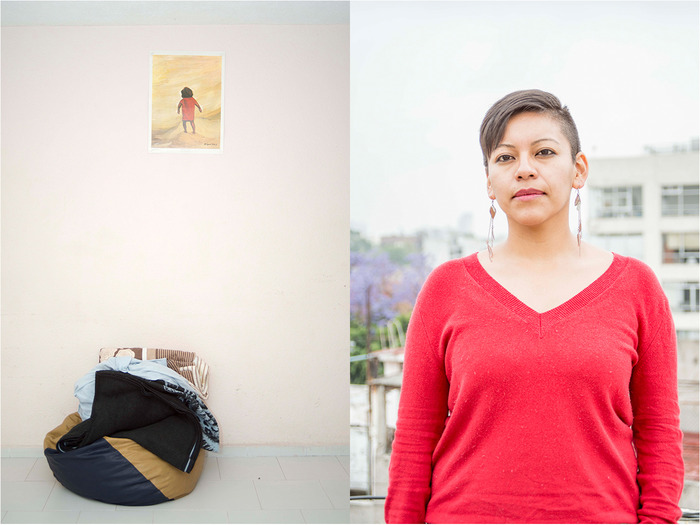Make a call to Time-Warner Cable’s customer service and you may find yourself talking to an American—in Mexico City.
According to Jill Anderson, the author of Los Otros Dreamers, a forthcoming book about young Mexican-American adults who have been deported or who returned on their own volition, there is an industry growing in Mexico City that relies on an influx of American-educated Mexicans. “Los Otros Dreamers” is a play on the political catch-phrase “Dreamers,” which refers to immigrants who were brought to the U.S. as children.
“[The other dreamers] are young people between the ages of 15 and 32, more or less, who were born in Mexico, grew up in the U.S. without documents, and are now back in Mexico, often with no legal way to return to the U.S.,” Anderson said in a recent interview.
| What do half-a-million adult children of Mexican immigrants do when the U.S. sends them back to Mexico? Work for cable companies serving Americans customers for as little as $3.68 an hour. |
That accounts for roughly 500,000 people, according to a Georgetown University study.
A key but fragile piece of the immigration reform bill currently in the Senate would create a channel for this overlooked group to reunite with family in the U.S.
According to Human Rights Watch, most deportees will not be eligible to return, but those with spouses, husbands, wives, and children will be able to if those family members are naturalized citizens. The bill would also help deported parents of children who were born in the U.S.
But that provision may not get through the Republican-controlled House.
The House recently voted to reverse a 2012 executive order that suspended deportations of young people brought to the U.S. before the age of 16. Though the bill is unlikely to get beyond the House, the vote is a symbolic blow to the hopes of dreamers in the U.S. and Mexico.
About 1.7 million non-immigrant visas were issued to Mexicans in 2012, according to the U.S. State Department. The U.S. does not collect data on how many people apply for visas.
Obviously, not every “Other Dreamer” is employed at a call center but most call centers employ Mexicans educated in the U.S. because of language skills and familiarly with American culture.
Call center employees start at 45-48 pesos an hour ($3.48-$3.68) and work about 60 hours a week, Jill Anderson says. That’s enough to afford housing and save up a little, but the work is taxing (imagine being on the other end of the last call you made to customer service).
| The immigration reform bill currently working its way through the Senate would help these people reunite with family and perhaps achieve the American dream. |
“Most describe it as a well-paying job, relative to other options,” Anderson says. “But not something that can be long-term for them.”
Why? Because most of los otros dreamers have, well, other dreams.
Itzel Polo is an organizer with the Popular Assembly of Migrant Families, a group that forms neighborhood organizations and clubs for Mexicans who have family in the U.S. For a year, he has been organizing call center employees at Teletech, an outsourcing firm that contracts with Time Warner Cable and other big telecommunication companies.
“We began to organize workers at Teletech from the perspective that this is a multi-national corporation that exists in our country to pay lower wages and less taxes,” Polo says. “And as we spoke to the workers we realized that, yes, they are aware of that situation, but that the biggest problem they face was not being able to enter the education system here in Mexico.”
Regardless of how the immigration reform bill turns out, Polo says work still needs to be done in the U.S. and Mexcio to create a fair system for returned migrants.
Win Vitkowsky is a journalist who lives and works in New York and New Haven.







0 Comments